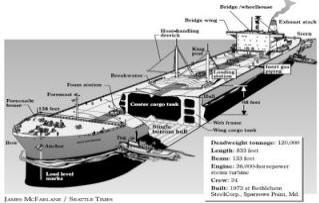|
First Edge’s experience the fuel industry to help strengthen its client’s agenda in bringing an optimum service with the latest fuel initiatives and products for key companies, first edge processes the functions and integration with our JV Partner’s or the companies we gate keep and manage, our fuel risk management models is designed to help mitigate the buyer or sellers on both financial and physical fuel trading such as finding Exit Buyers, Logistics on Vessels all around the world, also Storage Tanks Facilities.
|
Petroleum Information
.png) +
+
History and Development of Petroleum
Petroleum has been known throughout historical time. It was used in
mortar, for coating walls and boat hulls, and as a fire weapon in
defensive warfare. Native Americans used it in magic and medicine
and in making paints. Pioneers bought it from the Native Americans
for medicinal use and called it Seneca oil and Genesee oil. In
Europe it was scooped from streams or holes in the ground, and in
the early 19th cent. small quantities were made from shale. In 1815
several streets in Prague were lighted with petroleum lamps.
The modern petroleum industry began in 1859, when the American oil
pioneer E. L. Drake drilled a producing well on Oil Creek in
Pennsylvania at a place that later became Titusville. Many wells
were drilled in the region. Kerosene was the chief finished product,
and kerosene lamps soon replaced whale oil lamps and candles in
general use. Little use other than as lamp fuel was made of
petroleum until the development of the gasoline engine and its
application to automobiles, trucks, tractors, and airplanes. Today
the world is heavily dependent on petroleum for motive power,
lubrication, fuel, dyes, drugs, and many synthetics. The widespread
use of petroleum has created serious environmental problems. The
great quantities that are burned as fuels generate most of the air
pollution in industrialized countries, and oil spilled from tankers
and offshore wells has polluted oceans and coastlines.


Composition and Refining of Petroleum
The physical properties and exact chemical composition of crude oil
varies from one locality to another. The different hydrocarbon
components of petroleum are dissolved natural gas, gasoline,
benzene, naphtha, kerosene, diesel fuel and light heating oils,
heavy heating oils, and finally tars of various weights (see tar and
pitch). The crude oil is usually sent from a well to a refinery in
pipelines or tanker ships.
The hydrocarbon components are separated from each other by various
refining processes. In a process called fractional distillation
petroleum is heated and sent into a tower. The vapours of the
different components condense on collectors at different heights in
the tower. The separated fractions are then drawn from the
collectors and further processed into various petroleum products.
One of the many products of crude oil is a light substance with
little colour that is rich in gasoline. Another is a black tarry
substance that is rich in asphalt.
As the lighter fractions, especially gasoline, are in the greatest
demand, so-called cracking processes have been developed in which
heat, pressure, and certain catalysts are used to break up the large
molecules of heavy hydrocarbons into small molecules of light
hydrocarbons. Some of the heavier fractions find eventual use as
lubricating oils, paraffin’s, and highly refined medicinal
substances such as petrolatum.

